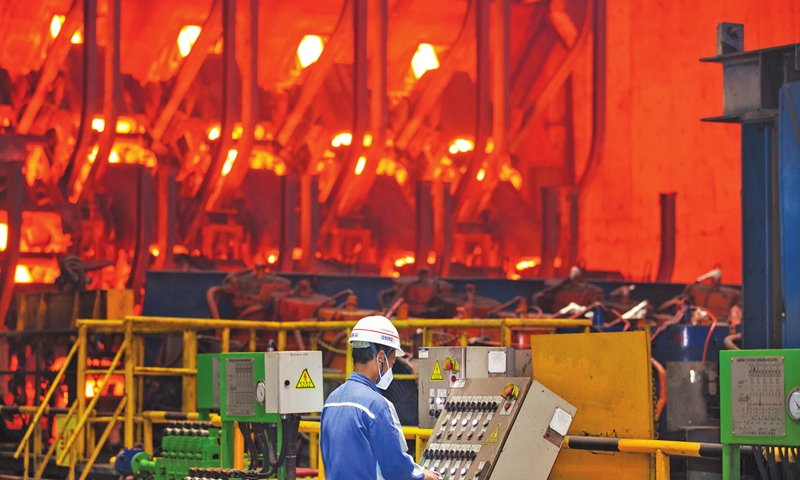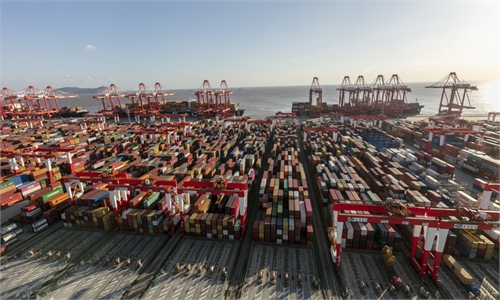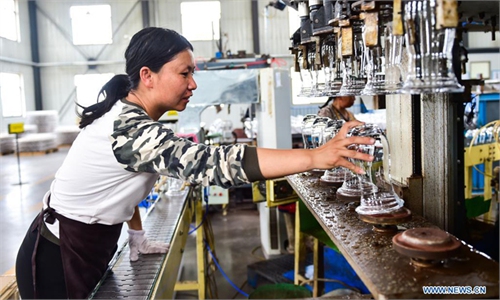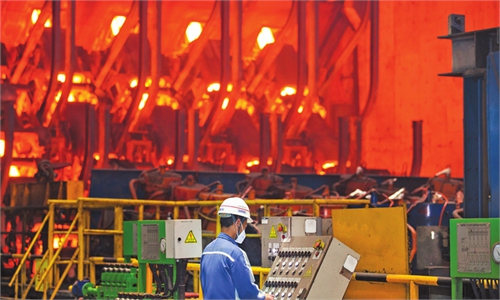
A worker rushes to finish orders for special steel products at a factory of China Baowu Steel Group's specialty steel subsidiary in Maanshan, East China's Anhui Province on Sunday. The company aims to achieve breakthroughs in core technologies this year, with its customized rail transit parts accounting for over 60 percent of the domestic market. Photo: cnsphoto
China's top economic planner introduced new rules on Thursday to ensure that price indexes of major commodities and services more accurately reflect actual market conditions, in a move to curb speculation in the volatile market.Under the new rules, national price indexes carrying the name of "China" and "nation" must fully indicate the coverage of its data collection, the National Development and Reform Commission (NDRC), the top economic planner, said on Thursday.
The move is aimed at standardizing market prices for important goods and services, including bulk commodities, to ensure reasonable pricing mechanism and accurate data collection, the NDRC said.
Also, to ensure the accuracy of the original price data, the measure imposes requirements on the location where the data is collected.
The new rules will take effect on August 1.
More effective regulation of data collection, compilation and release means that indexes can effectively reflect actual consumption and output, and restrain speculation, industry experts noted.
"The improved price compilation system is expected to adjust and amend some indexes that are not scientific and distort market views, so that participants can better grasp actual market demand while conduct futures and spot operations," Wang Guoqing, research director at the Beijing Lange Steel Information Research Center, told the Global Times on Thursday.
The standardizing of the index compilation process is part of the government's efforts to manage volatility in market prices, and is expected to have a great impact in curbing speculation, Wu Chenhui, an independent industry analyst, told the Global Times on Thursday.
"Stricter standards for index compilation can reflect the real demand and supply situation. The results will be more convincing and authoritative to market players, and therefore have a greater impact on the suppression of speculation," Wu said.
The new rules came after surges in some bulk commodity prices over the past month that may not necessarily reflect the fundamentals of supply and demand, analysts noted.
Through a series of measures, speculation had already begun to cool, with the prices of some bulk commodities such as iron ore, steel and copper retreating to various degrees, said Meng Wei, a spokesperson of the NDRC.
The NDRC's move on Thursday followed a series of recent measures to stabilize the commodity market.
The National Food and Strategic Reserves Administration announced on Wednesday that it would release national reserves of copper, aluminum and zinc in an open-bidding process.
Bids will be accepted from companies on the middle and lower reaches of the processing and manufacturing sectors, with policies favoring small and medium-sized enterprises, according to the agency.
Officials would continue to increase market supply, ease pressures on enterprises and help prices return to a reasonable range, according to the NDRC.
The NDRC will closely monitor price changes, strengthen supervision of the spot and futures markets, take measures to protect living standards, and ensure that market supplies and prices of daily goods and commodities are balanced, Meng said.



